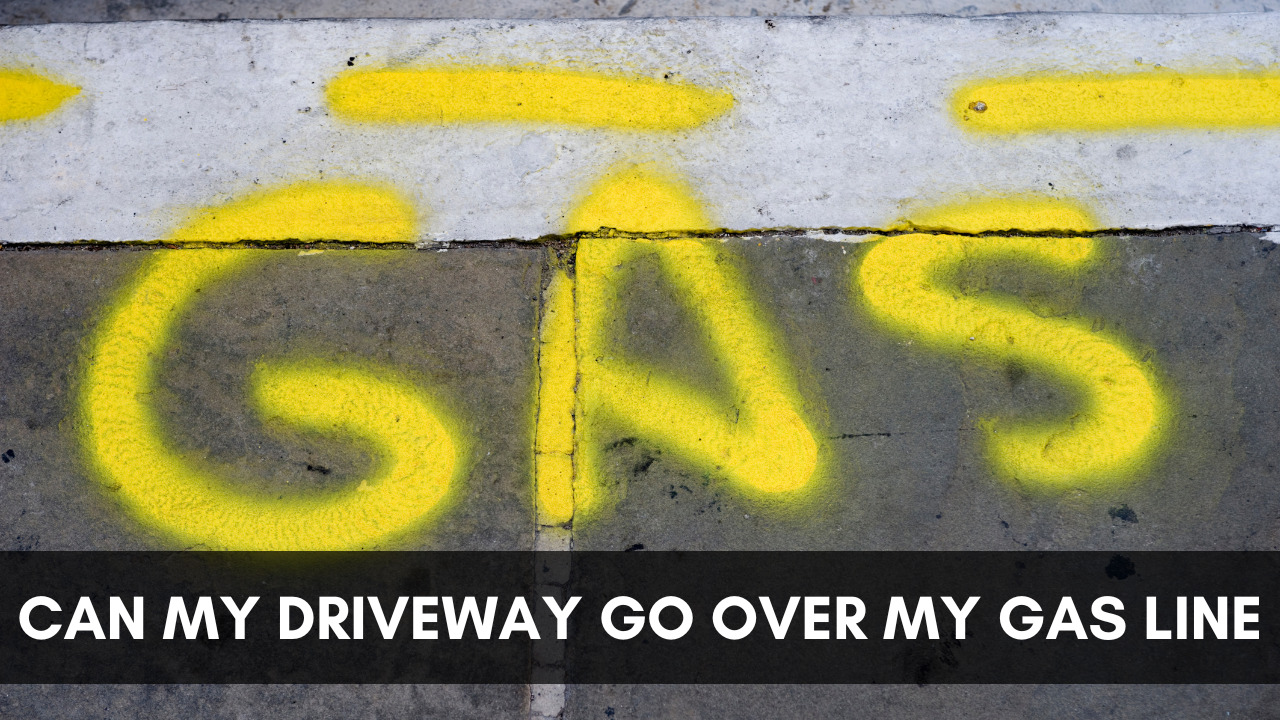The above-ground pipes can be covered with concrete, but if you dig up the pipes and cause damage, you are accountable. You are not liable if the pipes are not in the thread or deep enough; this is up to the utility companies.
Gas pipelines can be built as close to houses as they want. According to federal laws, no minimum separation from dwellings is required for pipeline installation. A gas line cannot be covered with concrete. The pipe could be harmed by the concrete, particularly if there is seismic activity.
If certain safety measures are implemented, it may be feasible to construct over a gas line. Because of the potential for damage to the pipeline and interference with the pipeline company, the development of buildings and other permanent structures is typically not permitted on transmission pipeline rights-of-way.
Table of Contents
Working Mechanism Of Gas Line
Gas pipes deliver gas for structures. Typically, the kind of gases that are conveyed is quite combustible. For homeowners, highly flammable gas has a variety of purposes, including heating your home with a fireplace and heating water.
The pressure inside the pipes is crucial for gas lines to reach their destination, just like water pipes. With this, there is a risk of hazard because the gas will spray and travel throughout the air if there is even a small breach on the gas pipe.
The aroma of gas, therefore, indicates the presence of a leak. It’s quite risky when a gas pipe leaks. The instant something triggers the airborne gas; it has the potential to ignite. Any loose gas in the air can be ignited by a little microwave spark or match flick, instantly starting a fire that quickly spreads.
Gas lines don’t blow up like in movies. Instead, it appears as though fire is being created out of thin air. Gas line leaks are so significant, and safety precautions are scrupulously observed to lessen the possibility of any gas line damage.
Why Should You Avoid Building Driveway Over Gas Line?
Gas lines must first and foremost be serviced often to be functional. This includes doing maintenance and cleaning checks. By its very nature, gas cannot be seen; it can only be smelled. Inspecting the gas pipe to detect any damage must always be simple.
Accessibility is made more difficult by concrete. Depending on the circumstances, this may or may not be positive. There are no benefits to having concrete put on top of gas lines; on the contrary, it can result in many issues.
The workers will have to break concrete to get to the stuff underneath. Such force could harm the items the workers wish to obtain as well. Covering your water lines with concrete in colder countries where pipes can freeze is not recommended.
How To Deal With Already Undergoing Gas Line?
Rerouting the gas line is the best course of action. The gas pipe that enters your lot should be momentarily turned off, and a new line might even be put in. You only need to provide an alternative way for the gas line to move around to obtain mechanical permission from your local authority.
There are procedures to assist you in keeping the gas line secure if that is impossible. Usually, structures, instead of dwellings, need to have a gas-tight sealant around the gas line and place it a specified distance away from the building before construction can begin.
But that doesn’t happen very often. Because cities are designed, gas lines would never cross a lot.
How To Build A Driveway Over A Gas Line?
Gas lines are constructed daily to create streets, driveways, and sidewalks. Remember not to dig down and strike it, as the new lines are made of flexible yellow plastic tubing. Just a few inches of ground could contain gas lines. Initially, gas lines are buried about a half meter into the ground in customers’ yards and a meter below the ground in lanes or easements.
However, as structures are developed, and slope modifications are made, lines may be considerably closer to the surface.
You will need to make arrangements for us to shift your gas supply if you need to move your gas meter, such as if you want to modernize your kitchen, construct over the service pipe, or if you need to access your emergency control valve but can’t in the existing location.
Avoid putting asphalt or concrete around the rigid gas delivery line that leads to the meter. To properly withstand seismic activity, this pipe must continue to be buried in supple, soft ground. An exposed gas meter is always prone to contact damage or displacement.
Bottom Line
Gas line systems are not present in every city or nation. Even so, it’s still necessary to educate yourself on safe gas handling practices because cooking requires heat in practically every home around the globe. By eliminating any activities that provide additional dangers, you can design your spaces so that the gas cannot ignite.
The top consideration is always safe when it comes to gas lines. When you need to do any construction interventions with gas lines, be sure you are dealing with professionals and have the required permits. Concrete is extremely useful and adaptable material.
However, there are specific situations and times when it should be used. Pouring concrete may seem smart because it virtually eliminates access to gas lines, but if something goes wrong, it will just worsen matters.





